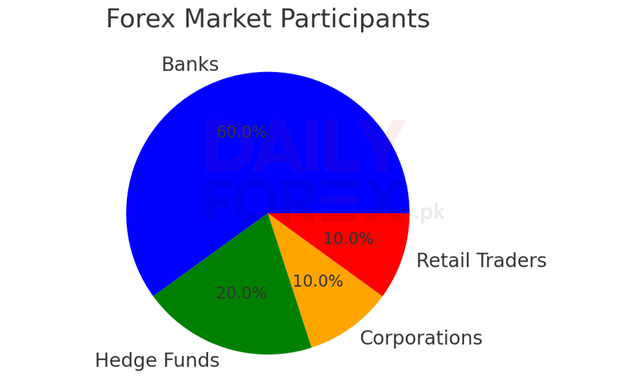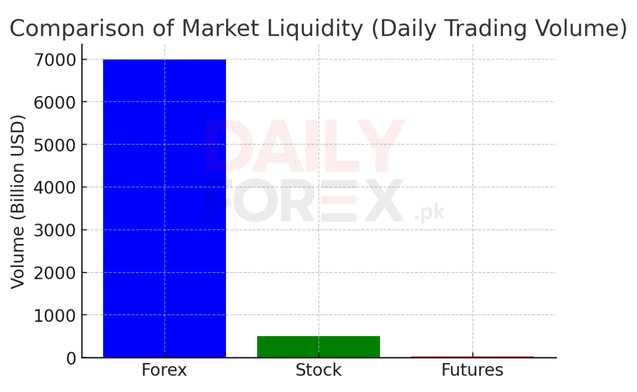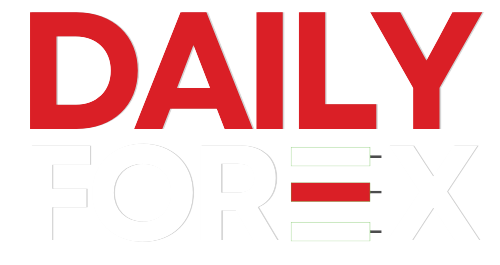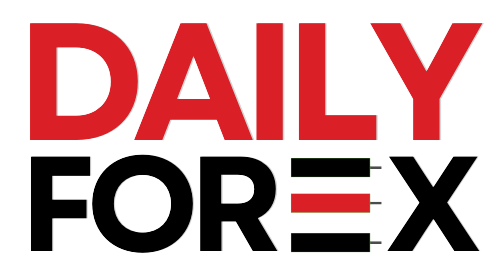The forex market is a vast and dynamic ecosystem where global institutions, hedge funds, corporations, and individual traders participate daily. With over $7 trillion traded every day, the forex market is the largest financial market in the world. But who exactly are the key players driving these massive transactions?
Understanding the main participants in the forex market will give you valuable insights into market movements, liquidity, and volatility. Let’s explore the major forex market players and their roles in shaping global currency exchange rates.

1. Central Banks: The Market Influencers
Central banks are at the top of the forex market hierarchy. They are responsible for managing a country’s monetary policy, controlling money supply, and setting interest rates. Some of the most influential central banks include:
- The Federal Reserve (Fed) – USA
- The European Central Bank (ECB) – Eurozone
- The Bank of England (BoE) – UK
- The Bank of Japan (BoJ) – Japan
How Central Banks Impact Forex
- Interest Rate Adjustments: Higher interest rates attract foreign investors, increasing demand for the currency.
- Currency Intervention: Buying or selling currencies to stabilize or manipulate exchange rates.
- Monetary Policy Announcements: Statements and forecasts can create significant price swings in forex pairs.
When central banks intervene, either through direct actions or verbal guidance, the entire forex market reacts.
2. The Interbank Market: Big Banks Dominate
Large commercial banks and financial institutions dominate the interbank market, where currency exchange rates are primarily determined. These institutions handle massive forex transactions for their clients, including governments, corporations, and hedge funds.
Major Players in the Interbank Market
- JPMorgan Chase
- Deutsche Bank
- CitiBank
- Goldman Sachs
- UBS
These banks act as market makers, setting bid and ask prices for currency pairs and ensuring liquidity in the forex market.
3. Electronic Liquidity Providers (ELPs): High-Frequency Traders
Electronic Liquidity Providers (ELPs) are firms that use high-frequency trading (HFT) and algorithmic strategies to provide continuous liquidity to the market. These firms execute thousands of trades per second to capture small price differences.
Notable ELPs in Forex Trading
- Citadel Securities
- Virtu Financial
- Jump Trading
- XTX Markets
These firms ensure that forex traders can buy or sell currencies instantly with minimal slippage and competitive spreads.
4. Large Multinational Corporations: Hedging Currency Risks
Global corporations participate in the forex market to manage currency risk arising from international trade and operations. Companies involved in exports and imports frequently exchange large volumes of foreign currency.
Examples of Multinational Corporations in Forex
- Apple (USA) – Purchases raw materials in China, selling products worldwide.
- Toyota (Japan) – Buys and sells vehicles across different currency zones.
- ExxonMobil (USA) – Trades crude oil globally, priced in USD.
Why Companies Trade Forex
- Currency Hedging: To protect against unfavorable exchange rate movements.
- Cross-Border Transactions: Converting revenue into domestic currency.
- Mergers & Acquisitions (M&A): Large currency exchanges during international deals.

5. Hedge Funds & Proprietary Trading Firms: The Big Speculators
Hedge funds and proprietary trading firms (prop firms) are major speculators in the forex market. These entities use sophisticated trading strategies, including:
- Quantitative Trading: Algorithm-based trading.
- High-Leverage Trading: Taking large positions with minimal capital.
- Macro Trading: Speculating on global economic trends.
Top Hedge Funds & Prop Firms in Forex
- Bridgewater Associates
- Renaissance Technologies
- Millennium Management
- Citadel LLC
Their large trades can cause significant market fluctuations, influencing short-term price movements.
6. Retail Traders: The Small but Growing Force
Retail forex traders, like you, represent the smallest players in the forex market, but their participation has been growing rapidly due to online trading platforms. Thanks to low barriers to entry, anyone with an internet connection can trade forex.
Why Retail Traders Participate in Forex?
- Leverage & Margin Trading: Ability to trade large positions with small capital.
- Low Transaction Costs: Tight spreads and commission-free accounts.
- 24/5 Market Access: Trade at any time, unlike stock markets.
Retail traders primarily operate through forex brokers, which act as intermediaries between them and larger liquidity providers.
7. Forex Brokers: The Gateway for Retail Traders
Retail traders need forex brokers to access the currency market. These brokers provide trading platforms, leverage, and market access.
Types of Forex Brokers
- Market Makers: Provide liquidity and create their own pricing.
- ECN Brokers: Connect traders directly to the interbank market.
- STP Brokers: Process orders without dealing desk intervention.
Popular Forex Brokers
- IG Group
- OANDA
- Forex.com
- XM

Final Thoughts: Understanding the Players Gives You an Edge
The forex market is a vast network of participants, each with different goals and strategies. Whether it’s central banks influencing currency value, major banks providing liquidity, hedge funds speculating on price movements, or retail traders aiming to profit from small price changes – understanding who you’re trading against is crucial.
If you want to succeed in forex trading, it’s essential to recognize how these players impact market trends, liquidity, and volatility. By keeping an eye on what the major market players are doing, you can position yourself strategically to take advantage of forex market movements.
Stay Tuned for more on Dailyforex.pk




